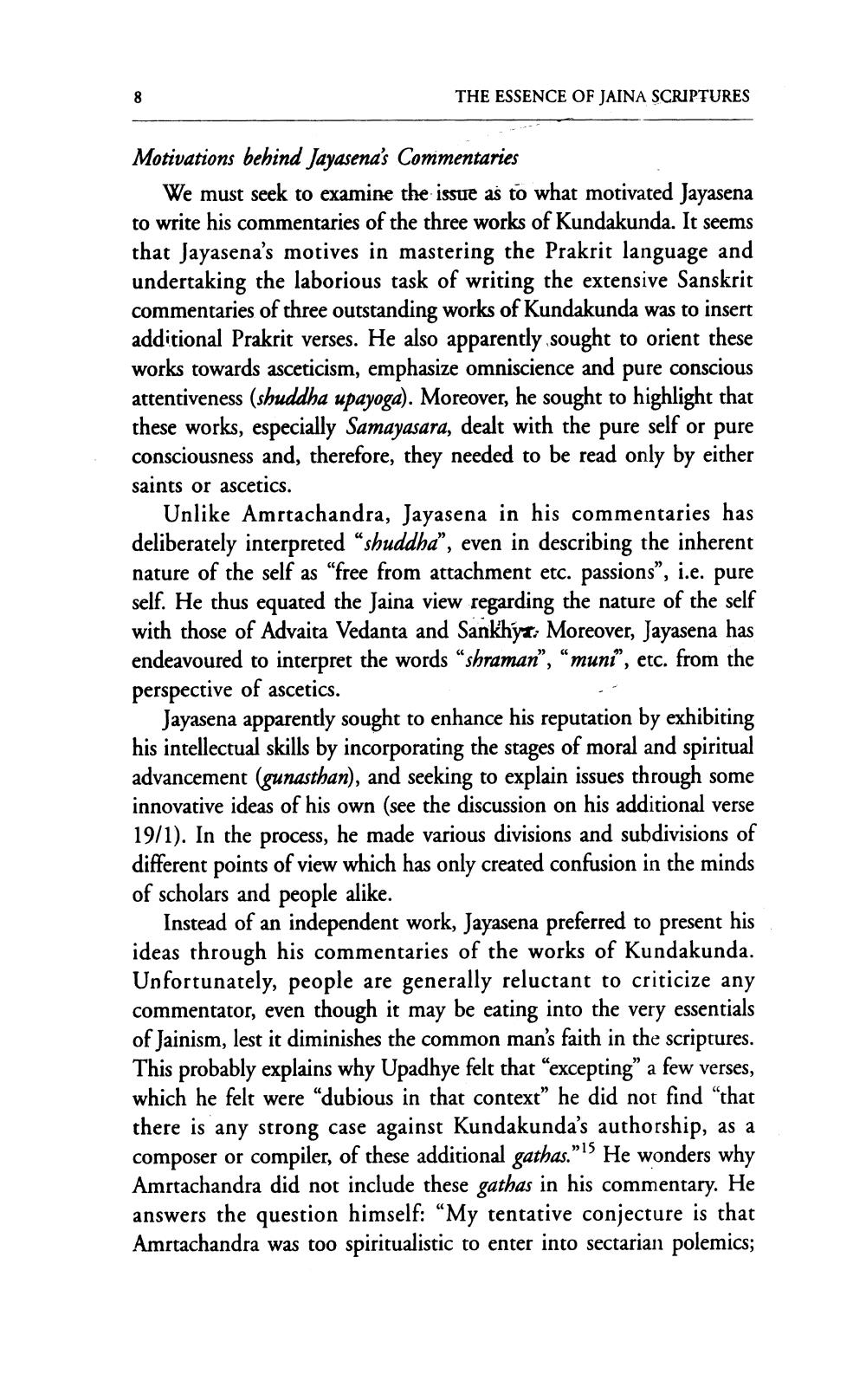________________
8
THE ESSENCE OF JAINA SCRIPTURES
Motivations behind Jayasena's Commentaries
We must seek to examine the issue as to what motivated Jayasena to write his commentaries of the three works of Kundakunda. It seems that Jayasena's motives in mastering the Prakrit language and undertaking the laborious task of writing the extensive Sanskrit commentaries of three outstanding works of Kundakunda was to insert additional Prakrit verses. He also apparently sought to orient these works towards asceticism, emphasize omniscience and pure conscious attentiveness (shuddha upayoga). Moreover, he sought to highlight that these works, especially Samayasara, dealt with the pure self or pure consciousness and, therefore, they needed to be read only by either saints or ascetics.
Unlike Amrtachandra, Jayasena in his commentaries has deliberately interpreted "shuddha", even in describing the inherent nature of the self as "free from attachment etc. passions", i.e. pure self. He thus equated the Jaina view regarding the nature of the self with those of Advaita Vedanta and Sankhyr. Moreover, Jayasena has endeavoured to interpret the words "shraman", "muni", etc. from the perspective of ascetics.
Jayasena apparently sought to enhance his reputation by exhibiting his intellectual skills by incorporating the stages of moral and spiritual advancement (gunasthan), and seeking to explain issues through some innovative ideas of his own (see the discussion on his additional verse 19/1). In the process, he made various divisions and subdivisions of different points of view which has only created confusion in the minds of scholars and people alike.
Instead of an independent work, Jayasena preferred to present his ideas through his commentaries of the works of Kundakunda. Unfortunately, people are generally reluctant to criticize any commentator, even though it may be eating into the very essentials of Jainism, lest it diminishes the common man's faith in the scriptures. This probably explains why Upadhye felt that “excepting” a few verses, which he felt were "dubious in that context" he did not find "that there is any strong case against Kundakunda's authorship, as a composer or compiler, of these additional gathas."15 He wonders why Amrtachandra did not include these gathas in his commentary. He answers the question himself: "My tentative conjecture is that Amrtachandra was too spiritualistic to enter into sectarian polemics;




